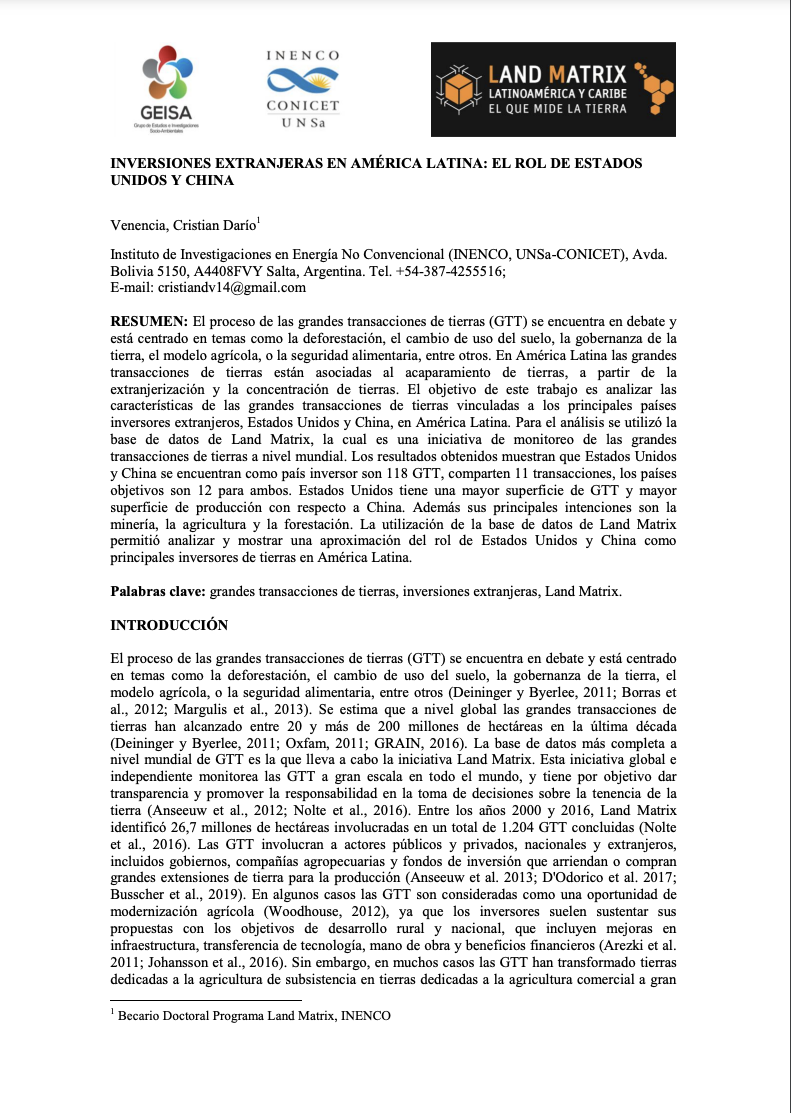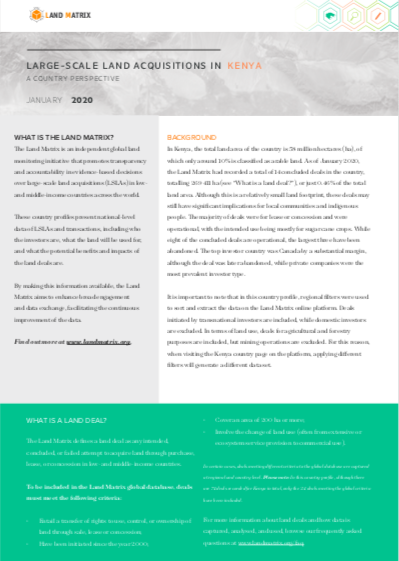Inversiones Extranjeras en América Latina: El Rol de Estados Unidos y China
El proceso de las grandes transacciones de tierras (GTT) se encuentra en debate y está centrado en temas como la deforestación, el cambio de uso del suelo, la gobernanza de la tierra, el modelo agrícola, o la seguridad alimentaria, entre otros. En América Latina las grandes transacciones de tierras están asociadas al acaparamiento de tierras, a partir de la extranjerización y la concentración de tierras.






